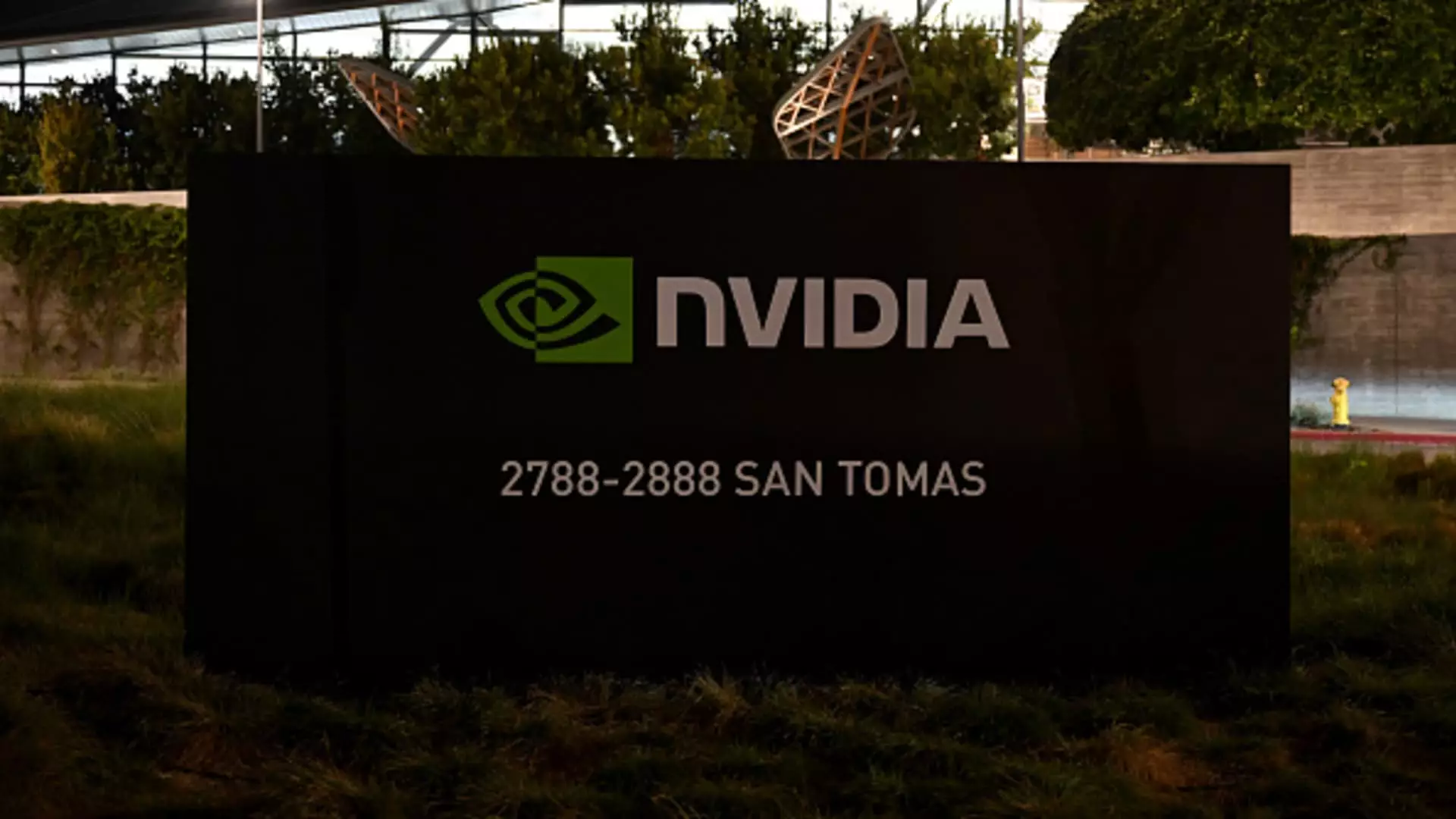In a landscape fraught with volatility, Nvidia CEO Jensen Huang’s recent declaration at the Goldman Sachs Communacopia + Technology Conference illuminated the path ahead for the artificial intelligence (AI) sector. His assertion that we are amidst a “computer revolution,” characterized by the emergence of generative AI, charged investors with renewed vigor. Huang posited that generative AI is more than just a tool; it’s an essential skill intrinsic to a newly forged industry. This perspective has not only elevated Nvidia’s stock by over 8% but has also rekindled hope amidst investor apprehension regarding the delayed returns on previous AI investments.
The implications of Huang’s remarks go beyond Nvidia alone. They signal a shift in focus among portfolio managers who are actively exploring profitable avenues within the AI domain. Portfolio manager John Belton highlighted that Huang’s statements denote an underlying optimism about sustaining demand, notably in relation to manufacturing ramp-ups facilitated by Taiwan Semiconductor Manufacturing Company. This optimism underscores a critical philosophy in investment—believing in sustained growth can significantly influence market behavior.
A wave of enthusiasm for AI and semiconductor stocks, including Advanced Micro Devices (AMD), Marvell Technology, Super Micro Computer, and Broadcom, has been perceptible this week. Each of these companies plays a pivotal role in the nascent generative AI zeitgeist. As firms look to bolster their technological capacities, hardware players emerge as immediate beneficiaries. Angelo Zino from CFRA delineates these hardware producers as essential for the ongoing build-out of generative AI infrastructure. Companies like AMD are ramping up production of competitive GPUs, while others, such as Broadcom and Marvell Technology, are pioneering the development of customized silicon chips for tech giants like Meta Platforms.
In parallel, Micron Technology, known for its memory solutions, is well-positioned to capitalize on the burgeoning requirements for data storage and processing capabilities. As industries progress towards increased computational demands, the need for robust memory solutions will only escalate, marking Micron as a long-term player in this evolving landscape.
While Nvidia’s bullish commentary dominated headlines, Apple’s recent announcements, particularly with the launch of the iPhone 16 featuring AI capabilities dubbed “Apple Intelligence,” have stirred a mix of skepticism and intrigue. Although some analysts expressed disappointment with the perceived incremental updates, Zino underscores Apple’s positioning as a leading player in the consumer AI space. With the anticipated adoption of the Vision Pro headset, Apple appears to be selectively embedding AI functionalities within its ecosystem, leveraging its brand loyalty and customer base for potential gains down the line.
Moreover, Dell’s trajectory looks promising as the company is poised to benefit from infrastructure improvements and enhance margins heading into the next fiscal year. This diversification of focus—from hardware giants to enterprise players—illustrates a comprehensive strategy by investors to harness growth in a multitude of segments related to AI development.
As AI continues to attract attention, a burgeoning concern emerges regarding market saturation and potential parallels to the dot-com bubble of the early 2000s. Mark Malek, the chief investment officer at SiebertNXT, warns that while large technology corporations—including Microsoft, Alphabet, and Amazon—will inevitably reap the benefits of AI advancements, significant innovations often lie hidden within the private sector. This sentiment resonates in today’s environment where many startups and privately held firms are actively innovating and agile enough to pivot and seize emerging opportunities.
The future of AI investment beckons both excitement and caution. As with any rapidly evolving sector, the challenge remains to distinguish between sustainable advancements and fleeting fads. Investors are increasingly tasked with evaluating not only the potential of established players but also the dynamic landscapes forged by innovative startups that may hold the keys to tomorrow’s breakthroughs in AI.
Nvidia’s Jensen Huang has ignited a renewed enthusiasm for AI investments, revealing the complexity and depth of opportunities afforded by this technological transformation. From hardware manufacturers benefiting in the immediate term to the dynamic landscape of emerging private enterprises poised to disrupt existing paradigms, the AI sector proves to be a fertile ground for investors willing to navigate its intricacies. Embracing both the triumphs and the challenges, the focus remains firmly on the developments likely to shape the industry’s future as we stand at the precipice of a new era in technology.


Leave a Reply